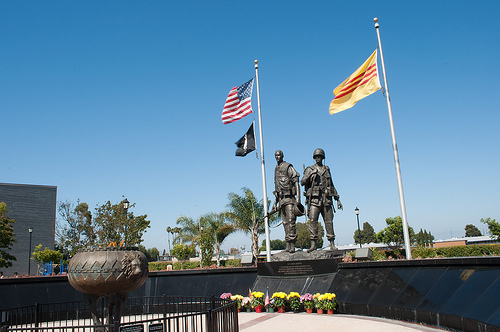Tim O’Brien wrote a series of gripping individual stories that were combined to create one book: The Things They Carried. This book recreated the emotion of a Vietnam War draftee before, during, and after the war. In a closer analysis of The Things They Carried the book explains the reason for writing the book, the strategies involved in this style of the writing, and an account of history from the perspective of the author through personal experience.
O’Brien’s thesis centers on the moral of a war story. This thesis is made evident by splitting the book into separate individual stories (vignettes). The stories contain a common argument that O’Brien makes through the use of his characters; morality does not fit within the context of the story. O’Brien makes it very clear throughout the book that the moral of a true war story is that there is no moral. If a war story is not fowl, evil, disgusting, and retched it is not a true war story.
Continue reading…


